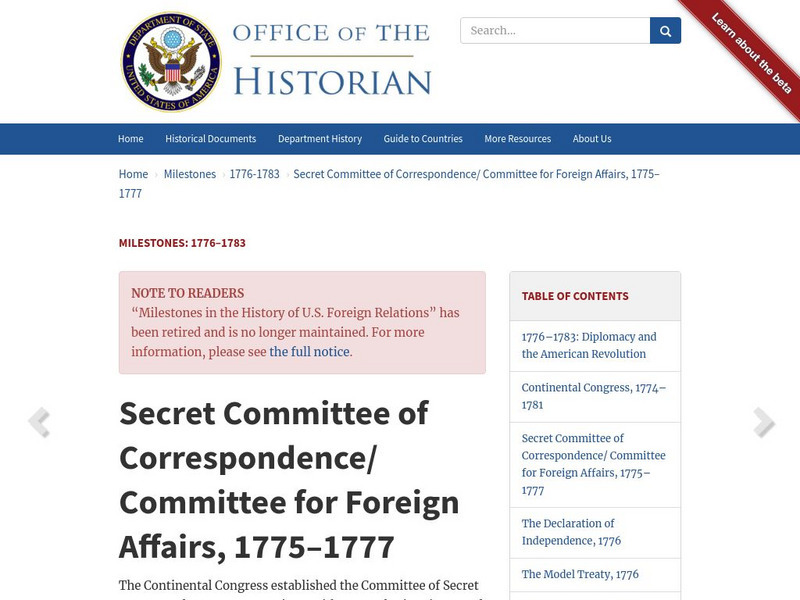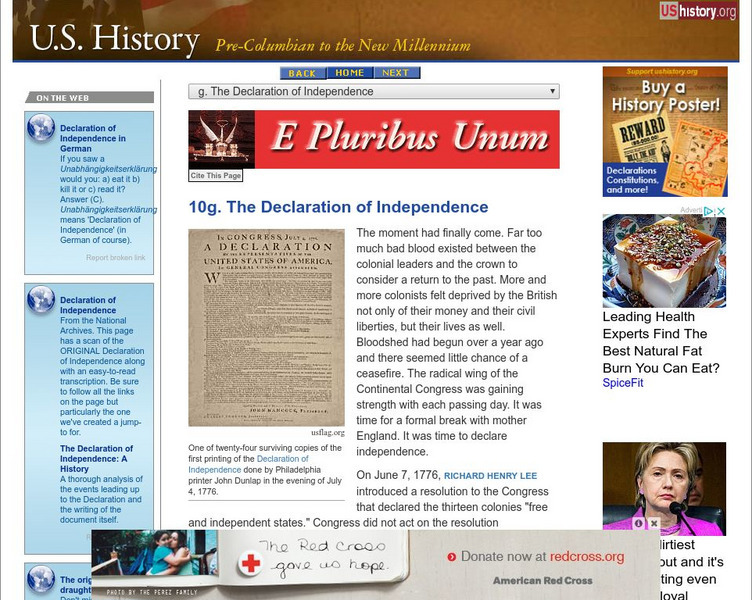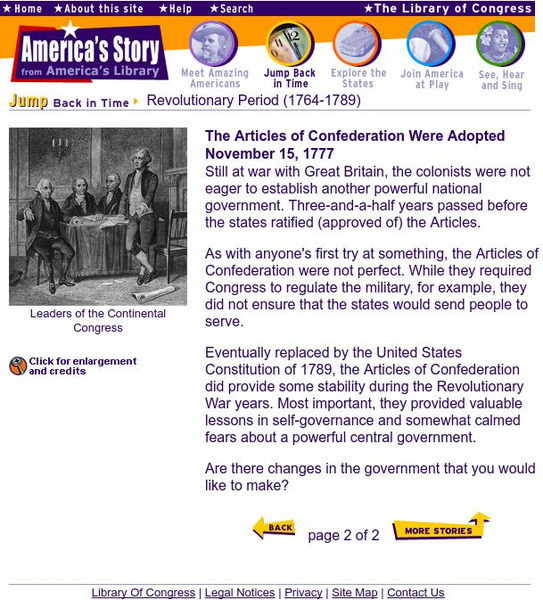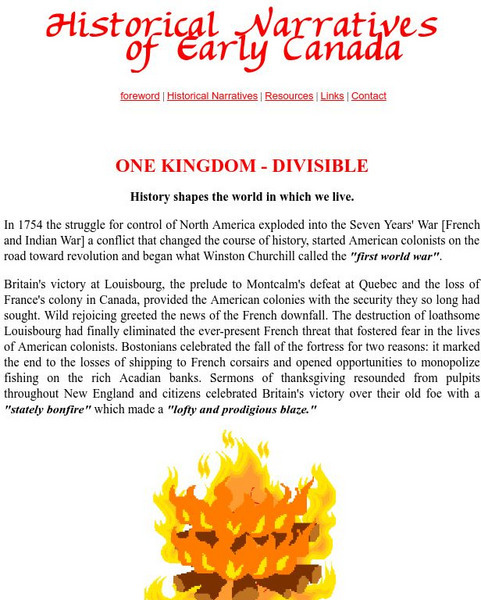Bill of Rights Institute
Bill of Rights Institute: Declaration of Independence
On June 7, 1776, Richard Henry Lee brought what came to be called the Lee Resolution before the Continental Congress. This resolution stated "these United Colonies are, and of right ought to be, free and independent states " Congress...
US Department of State
Office of the Historian: Continental Congress
The roots of our government began with the Continental Congress. Examine the roles this Congress played in the relationship between the colonies and Great Britain.
US Department of State
Office of the Historian: Secret Committee of Correspondance
Handling foreign affairs was tricky business in the years directly preceding the Revolutionary War. The Continental Congress came up with various methods such as a secret committee to communicate with Britain and other countries. Read...
Independence Hall Association
U.s. History: Declaration of Independence
The idea behind the Declaration of Independence and the process of writing it involved a great deal of thought and hand-wringing. Read about the three separate parts of the declaration, and the audiences for which the document was aimed.
The Dirksen Congressional Center
Congress for Kids: Independence
Travel back in American history to the time of the thirteen colonies struggling to free themselves from the rule of the British monarch, and discover how the Declaration of Independence was created.
PBS
Wnet: Thirteen: Freedom: A History of Us: Revolution: Continental Congress [Pdf]
A lesson plan from the producers of the 16-episode PBS series "Freedom: A History of US" that examines the rules by which the Continental Congress governed colonial America. Learners will identify people who held positions of leadership...
Library of Congress
Loc: America's Story: Articles of Confederation Adopted Nov. 15, 1777
This informative and easy-to-read site contains information about how the United States formed its first government under the Articles of Confederation. From the Library of Congress
Other
Karpeles Manuscript Library: The Olive Branch Petition
Gives analysis of the Olive Branch Petition and interactive views of each page of the document. Take a look at the original petition and learn about what it was for.
The History Cat
The History Cat: Winning the American Revolution
An unconventional, myth-busting history of the American Revolution from the Declaration of Independence to victory and the Treaty of Paris, 1783.
Other
The Architect of the Capitol: Roger Sherman
This resource from the Architect of the Capitol is a government site that focuses on art and architecture in the U.S. Capitol. Features a picture of a marble statue of Sherman.
Other
Historical Narratives of Early Canada: One Kingdom Divisible
This web page examines Benjamin Franklin, the Boston Tea Party, First Continental Congress, and the Second Continental Congress in 1775, where Canadians were invited to attend. Learn more about the flow of revolution and loyalty on each...
A&E Television
History.com: What Did the Three Continental Congresses Do?
During the Revolutionary War, the Continental Congress became America's de facto government. Over a period of 15 years, from 1774 to 1789, the Continental Congress underwent a profound evolution. Starting out as a temporary group that...
A&E Television
History.com: Continental Congress
From 1774 to 1789, the Continental Congress served as the government of the 13 American colonies and later the United States. The First Continental Congress, which was comprised of delegates from the colonies, met in 1774 in reaction to...
Other
Colonial Hall: Biography of Samuel Adams
A very long detailed biography on Samuel Adams, one of the signers of the Declaration of Independence. It is somewhat hard to read and tedious to go through, but lots of useful information.
Ducksters
Ducksters: American Revolution for Kids: The Continental Congress
Kids learn about The Continental Congress meetings; major events in the American Revolutionary War.
Ducksters
Ducksters: American Revolution for Kids: Declaration of Independence
"We hold these truths to be self-evident." This infamous quote is part of the Declaration of Independence which Congress adopted on July 4, 1776. Read about the ideas contained in this document and take a quiz at the end to see what you...







![Wnet: Thirteen: Freedom: A History of Us: Revolution: Continental Congress [Pdf] Lesson Plan Wnet: Thirteen: Freedom: A History of Us: Revolution: Continental Congress [Pdf] Lesson Plan](https://d15y2dacu3jp90.cloudfront.net/images/attachment_defaults/resource/large/FPO-knovation.png)





